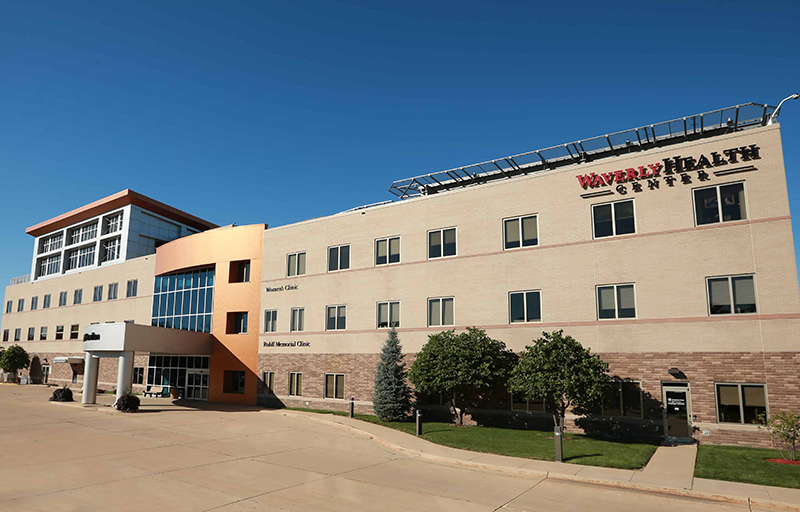Urology Clinic
Waverly Health Center’s Urology Clinic focuses on the diagnosis and treatment of conditions affecting the urinary tract and male reproductive system. Whether you’re managing ongoing symptoms or seeking answers to a new concern, our visiting specialist urologist provides personalized care tailored to your needs.
Through our visiting specialty program, patients can receive expert urologic care without leaving the comfort of our local hospital. We make it easier to access advanced care close to home, saving you time, travel and stress.
Contact Us
To make an appointment:
(319) 352-8033
Find Us
General Surgery Clinic
312 9th Street SW
Waverly, Iowa 50677
Clinic Hours
Visiting Specialty
Clinic hours vary
Please park in the blue parking lot and enter through the blue/clinic entrance.
Conditions We Commonly Treat
Our urology team provides care for both men and women facing a variety of urinary and reproductive health issues. Common conditions we treat include:
- Urinary incontinence & leakage
- Kidney stones
- Prostate issues (BPH, screenings, etc.)
- Recurrent urinary tract infections
- Erectile dysfunction
- Blood in urine (hematuria)
- Male infertility
- Bladder or testicular concern
Common Procedures We Offer
Our team uses advanced tools and techniques to diagnose and treat urologic conditions with precision and care. Services may include:
- Cystoscopy (bladder scope)
- Vasectomy and vasectomy reversal
- Prostate biopsy
- Urodynamic testing
- Treatment for kidney stones
Visiting Specialists

Christopher Adams
MD
Waverly Health Center
Waverly, IA 50677

Elizabeth Takacs
MD
Waverly Health Center
Waverly, IA 50677

Timothy Mulholland
MD
Waverly Health Center
Waverly, IA 50677
Frequently Asked Questions
Do I need a referral to see a urologist?
In most cases, a referral is not required. However, some insurance plans may ask for one. We recommend checking with your insurance provider or calling our clinic directly to find out.
Do you accept my insurance?
Yes, we accept most major insurance plans, including Medicare and Medicaid. Our billing team can help you understand coverage for your visit or procedure.
What are the signs I should see a urologist?
If you’re experiencing frequent UTIs, blood in your urine, difficulty urinating, incontinence or issues with sexual function, it’s a good idea to schedule a consultation.
Does Waverly Health Center offer vasectomies?
Yes, our urology clinic offers in-office vasectomy procedures as a safe, effective form of permanent birth control for men. The procedure is quick, minimally invasive and typically requires little downtime. If you’re considering a vasectomy, our provider will walk you through the process, answer your questions and help you decide if it’s the right choice for you.
Can you help with urinary incontinence or leakage?
Yes, we treat both men and women who are experiencing urinary incontinence or bladder leakage. Whether it’s stress incontinence, urge incontinence or a mix of both, our team can help find the cause and recommend treatment options. These may include lifestyle changes, medications, pelvic floor therapy or minimally invasive procedures.
What causes kidney stones, and how are they treated?
Kidney stones can form when minerals in the urine become concentrated and form crystals. Common causes include dehydration, diet and family history. Treatment depends on the size and type of stone and may include increased fluids, medication or a procedure to break up or remove the stone.

